In this week’s review of Court judgments, we look at Supreme Court’s direction to the Centre & States seeking status reports on the registration of migrant workers and the assistance provided to them, its rejection of appeal for blanket approval of not appearing for trial, Mumbai Metropolitan courts observation regarding peaceful agitation being right of citizen and Income tax tribunal’s observation regarding an appeal of ignorance as a reason for non-compliance.
SC: Seeks status reports from Centre & States on Registration of Migrant workers, community kitchens & Dry ration
Supreme Court sought compliance reports from Centre & State governments on the actions taken to comply with its earlier directions of June 2021, which required the centre & States to implement the “One nation, one ration card” scheme and to run community kitchens for the migrants.
In the earlier order passed by Justice Ashok Bhushan and Justice M.R. Shah, the court observed that it is the duty of all the States and governments to provide food security to impoverished persons. It has also directed the centre to create a database for unorganised workers and to develop a portal with NIC for migrant and unorganised workers. Activists Harsh Mander, Anjali Bhardwaj and Jagdeep Chhokar have moved the Supreme Court alleging non-compliance by the Union of India and a few states regarding the directions given by the Supreme Court in June 2021.
The activists filed a miscellaneous application and were also co-petitioners in suo motu case related to migrant workers during the pandemic, in which the supreme court gave the earlier judgement.
Accepting the application, the Supreme court directed the Solicitor General (SG) to file the status report and the action taken report. While the SG stated that it is the responsibility of the respective states, the court directed even the Centre to file the status report. The advocate representing Chhattisgarh provided an update on the progress made in the state.
The court directed the Union of India to file a status report regarding the directions in its June 2021 Judgement:
- Steps were taken in respect of Section 9 of the National Food Security Act, 2013 and to re-determine the total number of persons to be covered under rural & urban areas.
- Details of the food grains provided by the Centre to the State governments to implement schemes for providing rations to migrant workers.
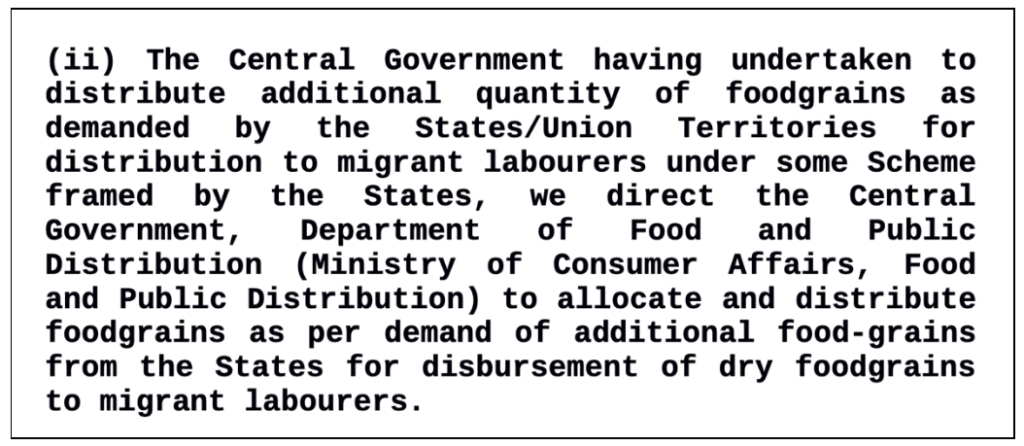
The court also sought a status report providing details of schemes formulated, number of beneficiaries, amount of dry ration distributed etc. Further, according to the application filed by the activists, the courts directed all the state governments to immediately run community kitchens at prominent places and provide cooked food for the migrant labourers. The court directed this report be submitted within four weeks.

SC: An accused cannot claim blanket exemption from personal appearances in cases under Section 138 NI Act.
In the case of Mahesh Kumar Kejriwal vs. Bhanuj Jindal, the two-judge Supreme court bench comprising of Justice Dinesh Maheshwari and Justice Aniruddha Bose, dismissed the petitioner’s claim of blanket exemption from personal experience, with an observation that an accused cannot claim a blanket exemption from appearance in a case pertaining to an offence under Section 138 of the Negotiable Instruments Act (NI Act.)
In this case, the petitioner filed an application relating to a cheque bounce case, asking for blanket relief of being exempted from personal appearance on all the dates when the case would come up for hearing.
Initially, the magistrate dismissed this application which was later partly allowed by the Session court directing the accused to furnish bail bonds/surety bonds. Seeking a blanket exemption, the accused moved to the High Court of Punjab & Haryana. The high court observed that there is no specific provision empowering the trial judge to provide a blanket exemption for the accused to make a personal appearance and dismissed the petition.

The accused based his application on the judgement in an earlier case, M/S Bhaskar Industries Ltd. Vs. M/S Bhiwani Denim Apparels Ltd. However, the Supreme Court observed that the specific judgment does not deal with the claim for blanket exemption. It observed that in the earlier case, the court observed discretion based on the specific details of the case and any such discretion needs to be observed only on rare occasions.
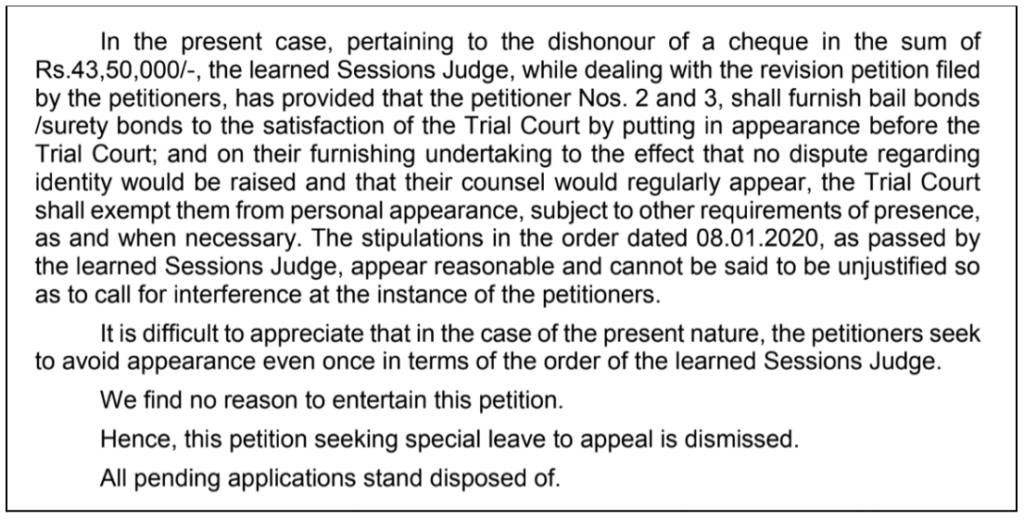
Mumbai Metropolitan Court: Peaceful agitation is a fundamental right of Citizens
Acquitting five women accused of Unlawful assembly, a Mumbai Metropolitan Court has observed that peaceful agitation is the Fundamental Right of every citizen in a democratic country. As per the case details, the accused women were allegedly protesting on Mumbai’s Eastern Freeway in 2015, as their area fell short of water for many days. They were detained by the police for obstructing the way and were booked under unlawful assembly and wrongful restraint.
Looking at the evidence provided, the court observed that the state has not been able to provide for any of the offences that the five accused ladies were booked under. The court noted that as per the witnesses, there were around 25 to 30 women who were agitating and breached the order of the police assembly. It also noted that the testimony of the two independent witnesses differed from the testimonies of the prosecution witnesses. It observed that the prosecution did not make efforts to examine the independent witnesses which raises doubt about the genuineness of the investigation.
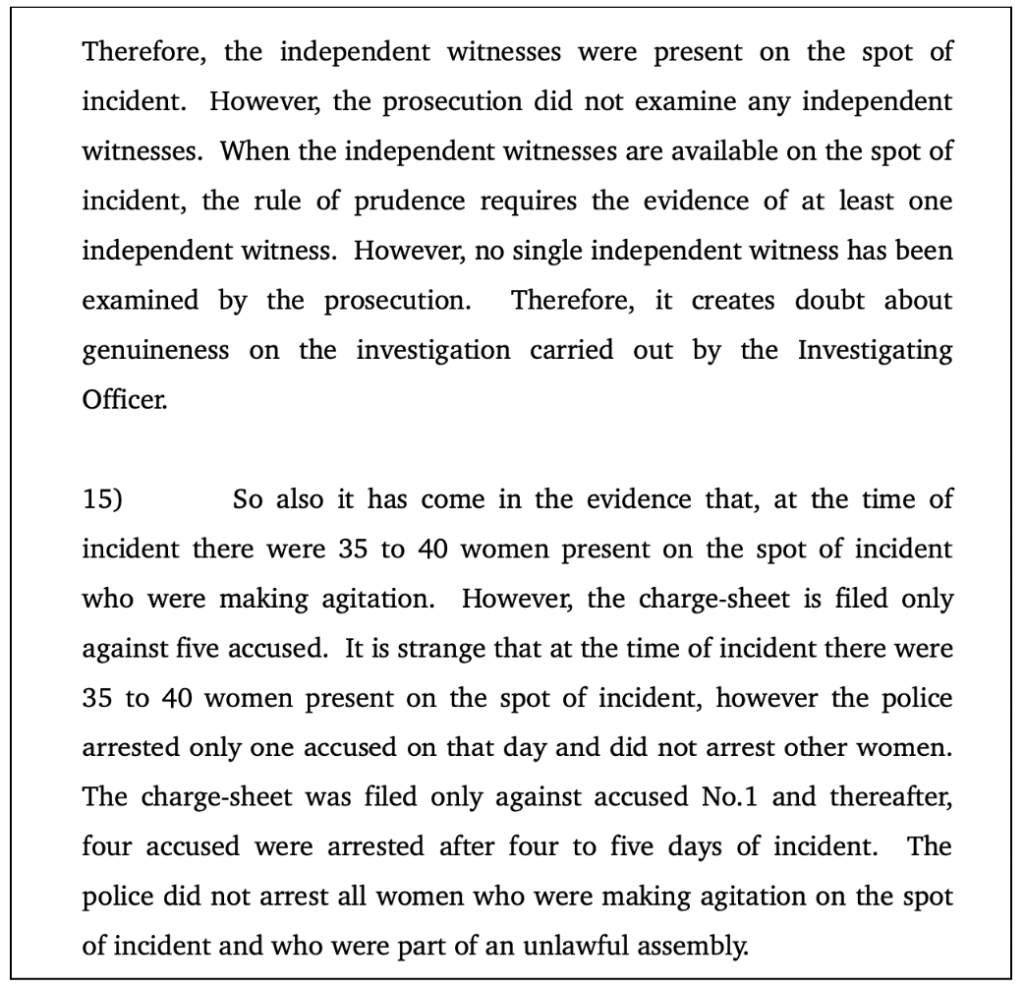
Metropolitan Magistrate R. S. Pajankar, observed that all the women who were agitating went home after the agitation. He further observed that in a democratic country, making peaceful agitation is a fundamental right of citizens.
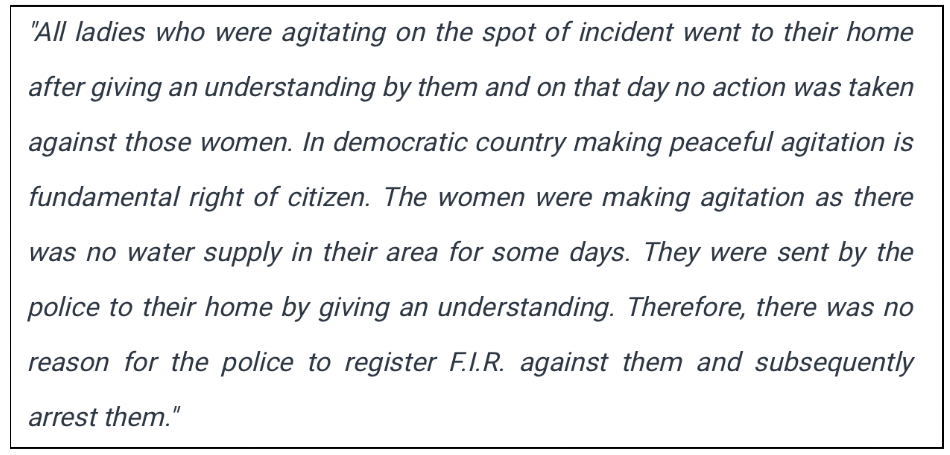
The court decided in favour of the 5 women arrested and acquitted them as there was no need to file an FIR against them.
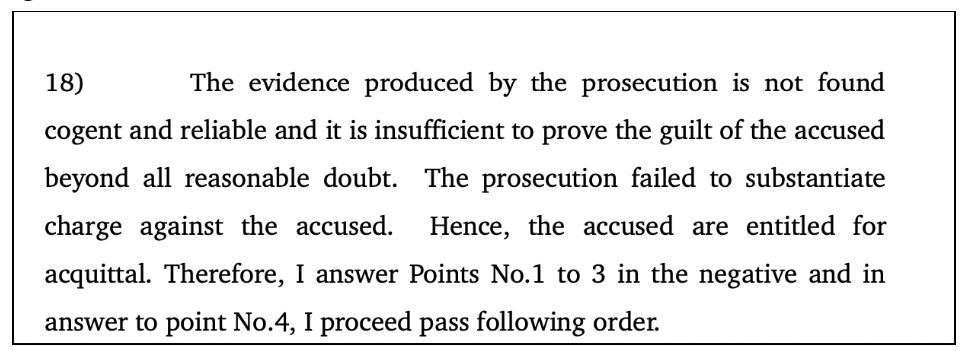
ITAT- Hyderabad: Mere ignorance of the law is not a basis for removing a penalty
In the case Mohd Zaheeruddin vs. Income Tax Officer, Hyderabad, Income Tax Appellate Tribunal – Hyderabad bench has observed that ignorance of law with respect to the provisions of Section 44AB of the Income Tax Act cannot be a reason for the penalty imposed on the Assessee.
The Section requires a compulsory audit of accounts, the failure of which attracts a penalty.
As per the case details, the assessee Mohd. Zaheeruddin was involved in the trading of shares and derivatives. During the relevant assessment year to which the case relates, the turnover achieved exceeded the limit for compulsory audit of accounts as per Section 44 AB of the IT Act.
Accordingly, the Assessment Officer imposed a penalty for failure of compliance. The Assessee filed an appeal stating that he was not aware of the provisions requiring a compulsory audit.
This appeal was made before the Commissioner of Income Tax (Appeals) (CIT(A)) and was duly rejected. CIT(A) noted that the contention of ignorance cannot be a reason for withdrawing the penalty. The assessee filed an appeal before the ITAT against the order given by CIT(A).
Mohd Zaheeruddin, the assessee claimed that he regularly drew a salary and only made some additional transactions during the specified year. Hence, he was not aware of furnishing an audit report and hence pleaded ignorance as a reasonable cause. However, ITAT stated that the case is covered under the provisions of Section 44AB and hence requires a compulsory audit of transactions.
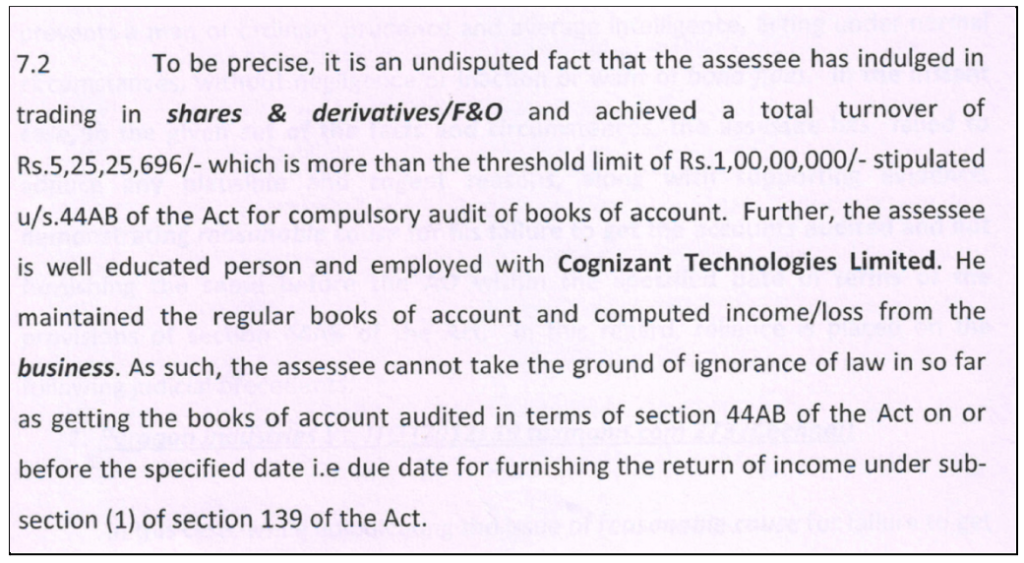
ITAT noted that the Assessee had failed to comply with the provisions by not preparing the audit report and submitting them on time. It ruled that mere ignorance of the law cannot be said to be a reasonable cause for withdrawing or cancelling the penalty and proceeded to dismiss the appeal.
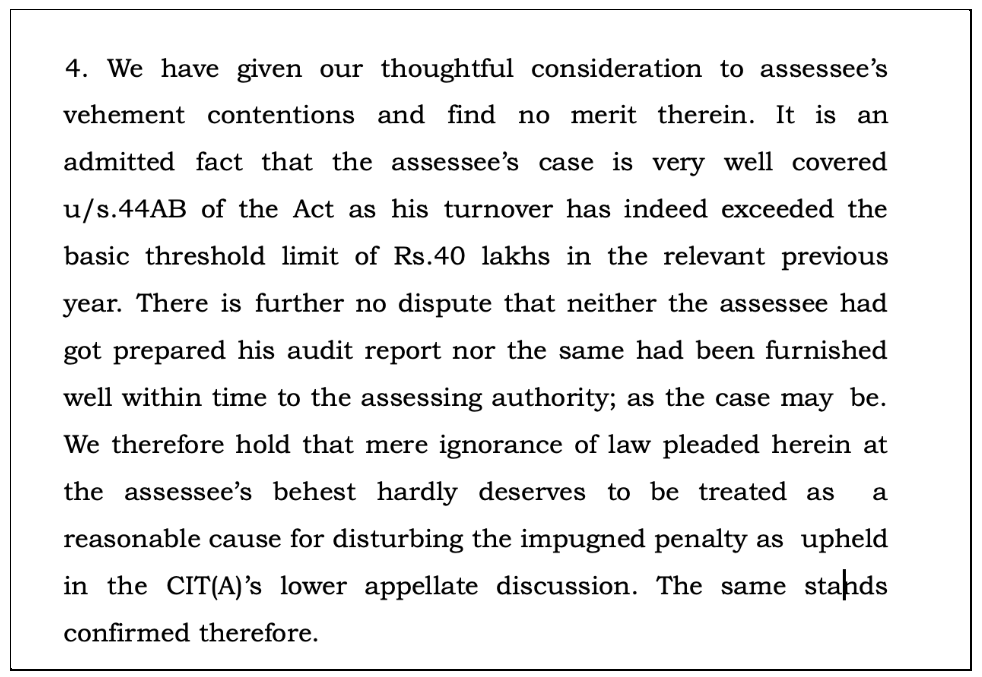
Featured Image: Important Court Judgements


